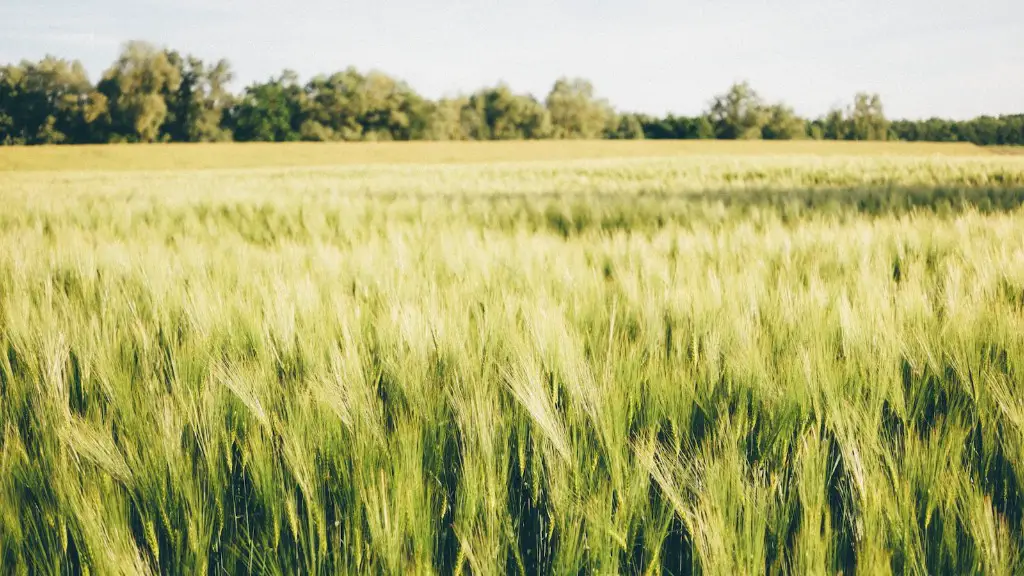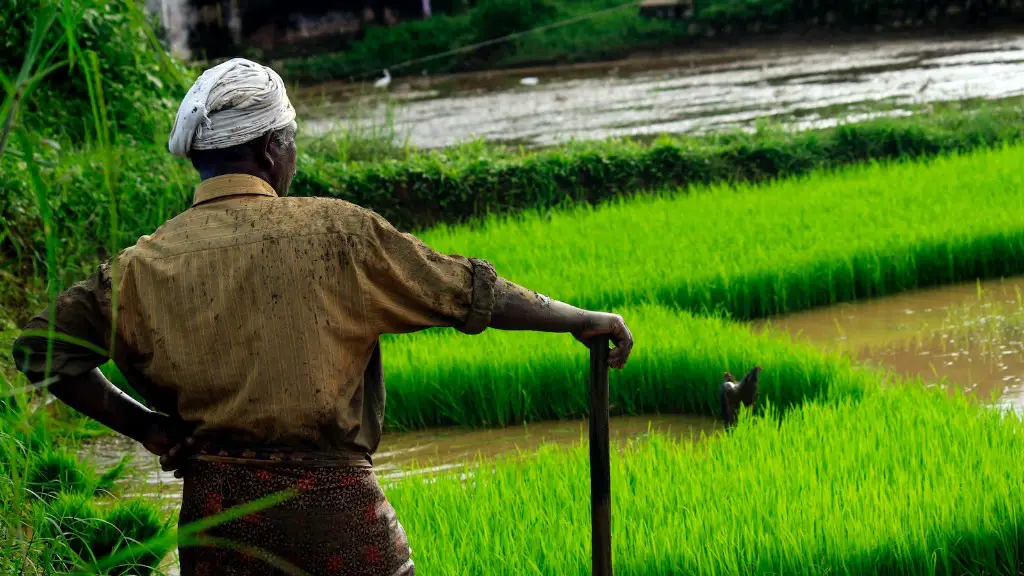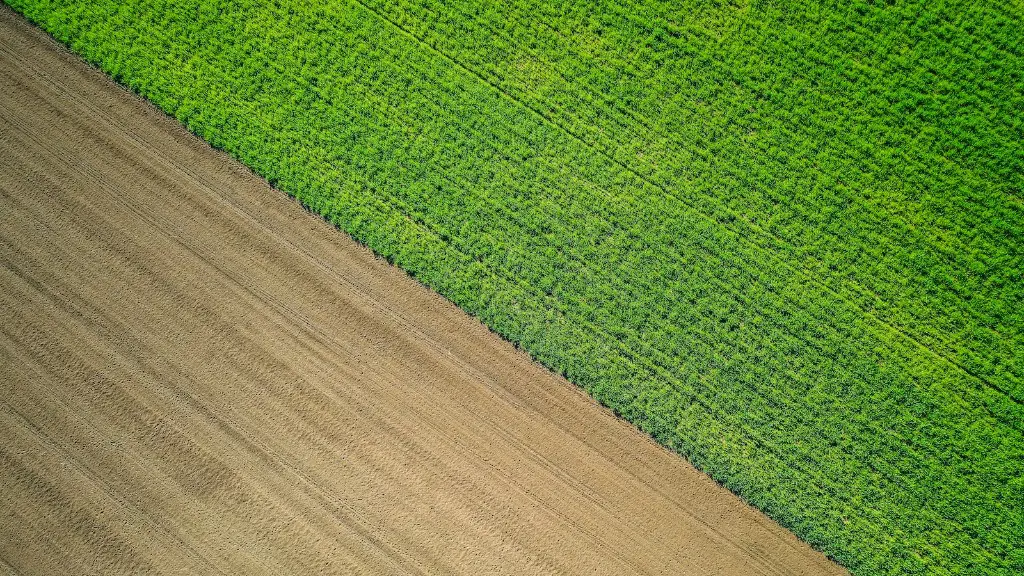Agriculture is a major determinant of socio-economic well-being and health, as well as environmental sustainability, food security, and nutrition. This means that any issues facing the agricultural sector can have wider implications. Currently, the agricultural sector is facing a number of challenges, including increasing population and rapid urbanization, climate change, natural resource degradation, and poverty. These challenges need to be addressed in order to ensure the sustainability of the sector and the continued provision and availability of food.
Increasing population and urbanization is one of the major challenges facing the agricultural sector. As the population grows and the cities expand, rural areas are increasingly depopulated, leading to a decrease in available arable land for food production. Additionally, population growth increases demand for food, which reduces land and water resources for food production. As a result, the agricultural sector needs to adapt in order to meet the higher agricultural productivity needs and deliver efficient food production and distribution systems.
Climate change is another major challenge that the agricultural sector is facing. Climate change can cause shifts in weather patterns, leading to changes in the availability of resources such as water, land, soil, and nutrients. This can have major impacts on agricultural productivity. In addition, it can also lead to an increased risk of pests and diseases, impacting crop production. Climate change also alters the suitability of certain areas for agricultural production and necessitates the development of adaptive practices in order to ensure productivity and sustainability.
Natural resource degradation is another important challenge facing the agricultural sector. Over-farming and deforestation can lead to land and water degradation, resulting in reduced yields. In addition, it can also lead to water scarcity, which can cause stress on crops and reduce yields. This can lead to a decrease in agricultural productivity, posing a major challenge for food security and nutrition, especially in areas with limited access to water.
Poverty is another major challenge facing the agricultural sector. Poor people tend to lack access to resources and services that would enable them to engage in agricultural production, leading to a reduction in potential yields. Additionally, poverty can also lead to poor nutrition, which is an important factor when it comes to ensuring productivity and sustainability. Therefore, poverty needs to be addressed in order to ensure the sustainability of the agricultural sector and food security.
Environmental Impacts of Agriculture
The agricultural sector has a major impact on the environment, both positive and negative. Many of the current issues facing the agricultural sector can be linked to its environmental impacts. For instance, unsustainable agricultural practices such as over-farming, deforestation, and overgrazing can lead to serious environmental degradation, including the loss of biodiversity, soil erosion, water pollution, and the destruction of natural habitats. This can then have a further impact on food production and availability.
In addition, the use of fertilizers, pesticides, and other agrochemicals can also have a negative environmental impact. These chemicals can pollute rivers and other water sources, leading to eutrophication and algal blooms that can have a major negative effect on aquatic ecosystems. Additionally, they can also contaminate soils and lead to soil fertility decline, reducing crop yields. Furthermore, the use of agrochemicals can also have a negative impact on human health and the environment.
Technological Advancements in Agriculture
Technological advancements in the agricultural sector can help to address many of the current issues, including those related to climate change, natural resource degradation, and poverty. For instance, precision agriculture techniques, such as geo-tagging and robotic equipment, can help to reduce inputs and increase yields. Moreover, the use of advanced technology can also improve the efficiency and sustainability of agricultural production.
In addition, the use of artificial intelligence (AI) can help to combat climate change. AI can be used to monitor crop health, detect pest outbreaks, and predict weather patterns. This can enable farmers to take proactive steps to protect their crops and reduce their reliance on agrochemicals. Furthermore, AI can also enable more efficient water management, which can help to reduce water stress and reduce the impacts of drought, floods, and other weather-related disasters.
The use of biotechnology in agriculture can also help to address current issues. For instance, biotechnology can facilitate the development of drought-resistant crops, which can help to reduce the impacts of climate change. In addition, biotechnology can also be used to develop crops that are better adapted to different environmental conditions, thus reducing the risk of pest outbreaks, ensuring yields, and improving resilience.
Organic Farming
Organic farming is a sustainable agricultural method that seeks to reduce the use of synthetic inputs, such as agrochemicals, and enhance ecological processes. This method of farming can help to reduce many of the issues facing the agricultural sector, including those related to climate change, natural resource degradation, and poverty. For instance, organic farming can help to reduce the use of synthetic inputs and increase soil fertility, thus improving crop yields. In addition, it can also reduce the risk of contamination of water sources, thus ensuring a more sustainable use of resources.
Organic farming is also beneficial for human health, as it reduces the risk of exposure to chemical residues on food. Furthermore, it also has a positive impact on the environment, as it reduces the potential for soil erosion, improves soil fertility, and restores biodiversity. Moreover, organic farming can also help to maintain soil structure and reduce the potential for soil degradation, thus ensuring the future of food production.
Social Issues in Agriculture
In addition to environmental and technological issues, agriculture is also facing a range of social issues. For instance, farmers are increasingly facing a lack of access to land and resources, due to the concentration of land ownership in the hands of a few. This can lead to a further increase in poverty and a lack of opportunity for smallholder farmers. In addition, farmers also face a lack of access to services, such as credit and markets, which can make it difficult for them to engage in agricultural production. Furthermore, they can also face discrimination and marginalization due to their lower socio-economic status.
In order to address social issues in agriculture, there is a need for policy measures, such as land reform, that can ensure equitable access to resources and services for farmers. In addition, access to education and training for farmers can also help to reduce poverty and increase opportunities. Furthermore, policies that promote women’s empowerment can also help to reduce gender disparities and ensure greater access to resources. Finally, the promotion of farmer-led innovation can also help to ensure greater efficiency and productivity in the agricultural sector.
Conclusion for Food Resource Management
In conclusion, the agricultural sector is facing a range of challenges, both environmental and social, that need to be addressed in order to ensure the sustainability of the sector and the continued availability of food. Technological advancements, such as precision agriculture and the use of artificial intelligence, can help to reduce inputs and increase yields. In addition, organic farming can also help to reduce the impact of synthetic inputs on the environment and improve human health. Finally, policy measures, such as land reform and access to services and education, can help to address social issues and reduce poverty in the agricultural sector.



